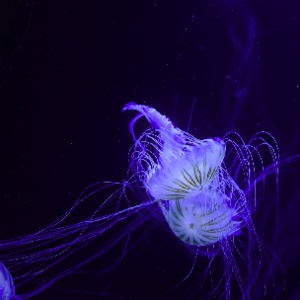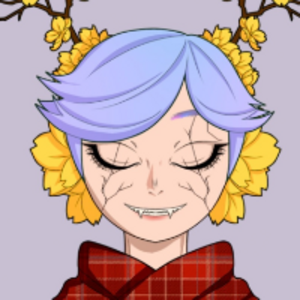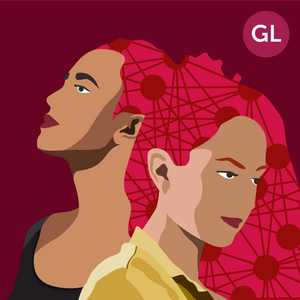Abigail hadn’t lied. A quick search for Helena Norwood turned up several recent articles citing her name. She was a replica, of course, and an advocate for replica-organic equality. The original, organic Helena Norwood was a child of a wealthy family, who at a very early age developed amyotrophic lateral sclerosis, one of the few health conditions which could legally be “treated” with prophylactic replication. She was replicated at fifteen, and that was six years ago, so the current Helena Norwood must be about twenty-one. That explained why she seemed so young to me at first, since the shells of replicas don’t age quite like organic bodies do.
“You knew!” I shouted at Abigail, once I saw her on the campus grounds. “Why didn’t you tell me?!”
Abby laughed.
“Well, I wanted to see your face when you found out,” she said, smiling deviously. “Did someone tell you, or did you figure it out yourself?”
“I… well, she hinted at it, so I looked her up. Shit, Abby, you should have told me. I looked like a fool.”
“You always look like a fool, Luce, that’s just how your face is. And what do you mean ‘she hinted at it’? Did you two talk?”
I nodded, and sat beside her on the wooden bench.
“Briefly,” I said. “She knew my father.”
Abigail shrugged, and kept eating her sandwich. “Not very surprising. A lot of people knew your father in this field of study.”
“Not that,” I told her. “She really knew him. She said she misses him. I think they were close… Dammit, Abby, I think I need to see her again.”
“Hold on,” said Abby, her mouth full of tuna sandwich. She chewed, swallowed, then continued talking: “Is this a ‘I want to know more about my father, so I need to see her again’ kind of thing, or is it more of a ‘that girl is hot, so I need to see her again’?”
I rolled my eyes.
“It’s not that,” I told Abby, partly to reaffirm it to myself. “I just want her to tell me what my father was like at work, is all. I don’t want to get involved.”
Abby creased her forehead in disbelief.
“Now that there is denial, Luce. At least admit that you find her hot.”
“I do,” I told Abby. “I do think she’s hot, and cute, and has a sexy bottom. But she’s literally my father’s work, and you know I don’t like to get myself involved with that.”
Abigail sighed, and put down her sandwich on the far end of the wooden bench. She wrapped an arm around my neck, resting her hand on my right shoulder.
“Hey, Luce… is this whole story about your father still hurting you? Do you want to talk about it?”
“No,” I answered. “I mean, yes, it still hurts, but I don’t think I want to talk about it.”
“Good,” said Abby, smiling. “Because I’m kinda late to meet my boyfriend, and I don’t wanna cancel on him again. See ya soon?”
I scoffed. “Yeah, okay, Abby,” I said, acidly.
“Oh, come on!” she protested. “You can figure this out yourself, Luce. So what if she knew your father? You like the girl, that's all that matters. Why are you making such a big deal out of this? Know what? This is what you have to do: you go after her, figure out if she likes you too, and if it doesn’t turn out well you can always call me for movies and ice cream. Simple.”
I laughed. To Abby, everything was always “simple”.
“Okay then,” I said, smiling. “Thanks, Abby.”
Abigail laughed, kissed me in the left cheek, then jumped up and began dashing to the campus gates.
“Weirdo,” I said out loud, to nobody in particular. Her sandwich laid abandoned on the bench. I decided to salvage what was left of it, since I was hungry, and began walking on my way home.
Abby was wrong about me. I had no interest in the replica woman. Getting involved with anything regarding my father’s work usually only rewarded me with tears, frustration, and a sense of emptiness. Helena Norwood, as far as I could tell, was precisely that very work, or at least part of it. Was I crazy enough to get myself involved with her?
I opened the front door of my and my mom’s apartment and walked up the stairs to my room. On top of the nightstand, there was the last picture I ever took with my father. He made sure to print it, in the old-fashioned way, just so he could write a cute message on the back of the photo and hide it inside one of my books. I found the picture four days after his death. It’s my most prized possession.
“Why did you have to leave?” I whispered to the photograph, laying on the bed beside it. “There was still so much I wanted to ask you.”
Dad was smiling in the picture. That’s how I remember him, most of the time: always smiling. But at the time of his death, he was at work, in the Cyan Four Laboratory. Did he smile there like he did at home? He probably acted very different there from how he was with his family. Or maybe he treated his projects as family as well. I didn’t know. I realized, back then, that I really didn’t know my father all that well.
But there was someone who did.
I opened my messaging app and shook my head. “I can’t believe I’m actually doing this,” I told myself, then typed a message quickly before I had time to reconsider it.
To: Helena Norwood.
Could you tell me more about my father?
Then I closed the app and dashed downstairs, trying not to think about whether or not I was making another huge mistake. I was about to start cooking dinner when I received Helena’s reply.
Are you doing something tonight?
She’s... inviting me out?
No, why?
Her reply came almost immediately after mine. It read:
Come to the coffee shop next to the main square. I’ll send you the address. We can talk there.
I held my breath, then typed my reply:
I’ll be there.










![[Dropped] What makes you you ~ GL](https://us-a.tapas.io/sa/1b/e3a7c1ff-6a96-4108-8eec-bb6b3abdfb2d.png)

Comments (1)
See all